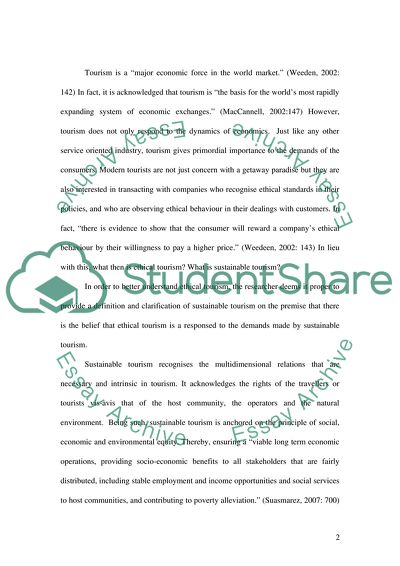Cite this document
(Ethical and Sustainable Tourism as Practise in Florence, Italy Case Study, n.d.)
Ethical and Sustainable Tourism as Practise in Florence, Italy Case Study. Retrieved from https://studentshare.org/tourism/1715331-ethical-tourism-planning-development-individual-report
Ethical and Sustainable Tourism as Practise in Florence, Italy Case Study. Retrieved from https://studentshare.org/tourism/1715331-ethical-tourism-planning-development-individual-report
(Ethical and Sustainable Tourism As Practise in Florence, Italy Case Study)
Ethical and Sustainable Tourism As Practise in Florence, Italy Case Study. https://studentshare.org/tourism/1715331-ethical-tourism-planning-development-individual-report.
Ethical and Sustainable Tourism As Practise in Florence, Italy Case Study. https://studentshare.org/tourism/1715331-ethical-tourism-planning-development-individual-report.
“Ethical and Sustainable Tourism As Practise in Florence, Italy Case Study”, n.d. https://studentshare.org/tourism/1715331-ethical-tourism-planning-development-individual-report.


